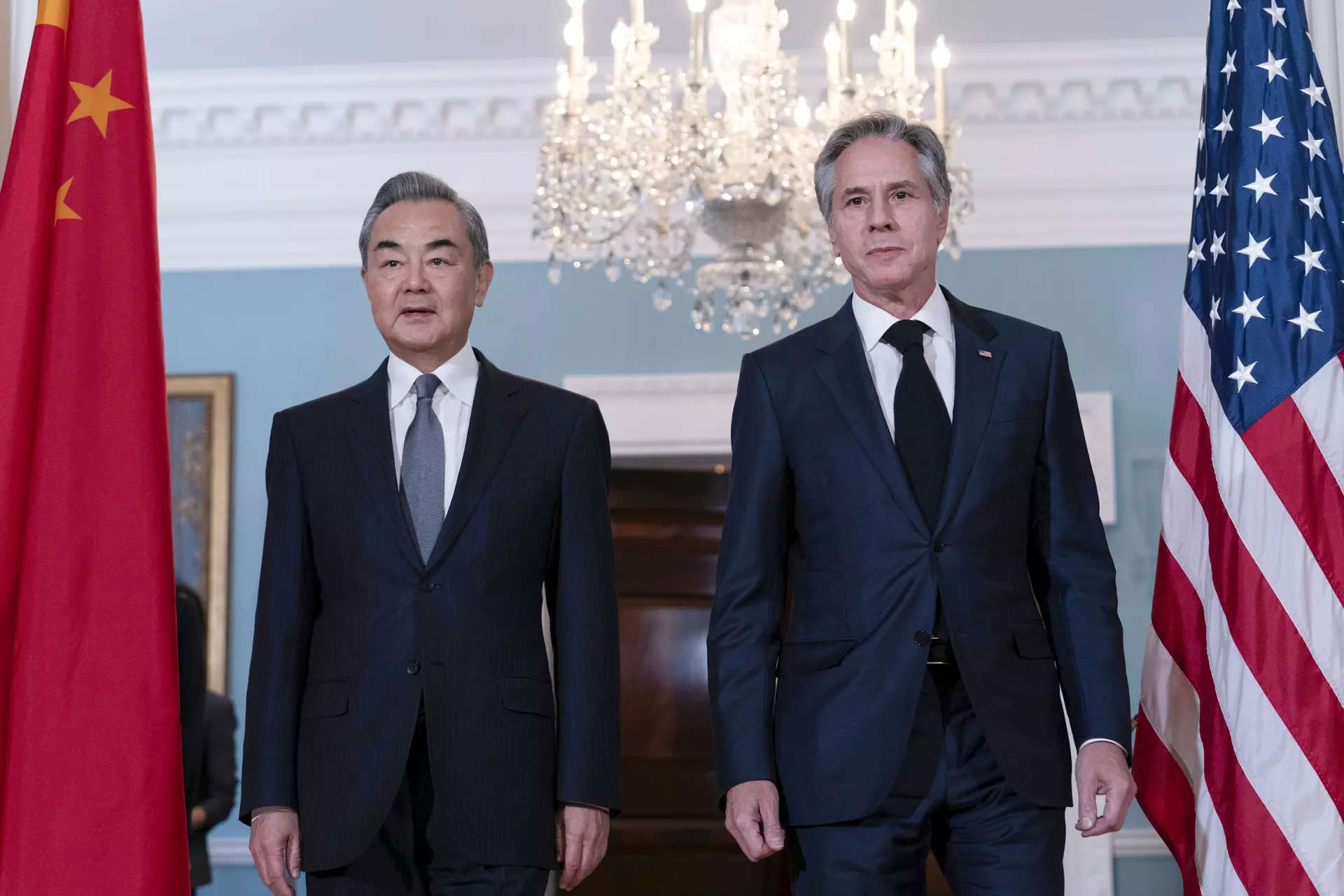These talks occurred against a backdrop of deepening divisions, underscored by recent legislative actions taken by the United States, particularly a significant foreign aid bill that raised concerns in Beijing.
Blinken, after meeting with Chinese Foreign Minister Wang Yi and Public Security Minister Wang Xiaohong, emphasized the necessity of maintaining open lines of communication to address a range of contentious issues such as Taiwan, the South China Sea, trade, human rights, and China’s support for Russia. Both sides acknowledged the increasing challenges facing the relationship while expressing a commitment to dialogue and stability.
“We are committed to maintaining and strengthening lines of communication between us,” so that the two sides can prevent any “any miscommunications, any misperceptions and any miscalculations,” said Blinken.
Wang Yi, while acknowledging some stabilization in the relationship, pointed out the rising negative factors and disruptions, urging both countries to choose the path of stability over further deterioration. He reiterated China’s longstanding grievances regarding US policies on various fronts and stressed the importance of respecting each other’s core interests.
At the start of about 5 1/2 hours of talks, Wang told Blinken, “Overall, the China-US relationship is beginning to stabilise. But at the same time, the negative factors in the relationship are still increasing and building and the relationship is facing all kinds of disruptions.”
“China’s legitimate development rights have been unreasonably suppressed and our core interests are facing challenges,” he said. “China’s concerns are consistent. We have always called for respect of each other’s core interests and urge the United States not to interfere in China’s internal affairs, not to hold China’s development back, and not to step on China’s red lines on China’s sovereignty, security, and development interests,” Wang Yi further added.
In response, Blinken reaffirmed the Biden administration’s commitment to dialogue, even amidst disagreements. He acknowledged the complexities of the discussions ahead but emphasized the necessity of clear and direct communication to prevent misunderstandings and uphold respective interests and values. Despite areas of difference, both sides engaged in substantive discussions, with Blinken standing firm on US concerns regarding human rights and other issues.
“I look forward to these discussions being very clear, very direct about the areas where we have differences and where the United States stands, and I have no doubt you will do the same on behalf of China,” said Blinken responding to Wang Yi.
Blinken’s visit to China coincided with the signing of a foreign aid package by President Biden, which included provisions aimed at countering Chinese assertiveness in regions like Taiwan and the South China Sea, as well as addressing concerns related to the TikTok platform. These actions further heightened tensions between the two nations, with China condemning what it viewed as provocative moves by the US.
The bill also allocated substantial funds to support Ukraine in its defense against Russia’s invasion, an issue that has strained US-China relations further due to Chinese support for Russia’s military sector. Discussions regarding China’s relationship with Russia were anticipated during Blinken’s visit, especially with Russian President Putin’s upcoming visit to China in May.
function loadGtagEvents(isGoogleCampaignActive) { if (!isGoogleCampaignActive) { return; } var id = document.getElementById('toi-plus-google-campaign'); if (id) { return; } (function(f, b, e, v, n, t, s) { t = b.createElement(e); t.async = !0; t.defer = !0; t.src = v; t.id = 'toi-plus-google-campaign'; s = b.getElementsByTagName(e)[0]; s.parentNode.insertBefore(t, s); })(f, b, e, 'https://www.googletagmanager.com/gtag/js?id=AW-877820074', n, t, s); };
function loadSurvicateJs(allowedSurvicateSections = []){ const section = window.location.pathname.split('/')[1] const isHomePageAllowed = window.location.pathname === '/' && allowedSurvicateSections.includes('homepage')
if(allowedSurvicateSections.includes(section) || isHomePageAllowed){ (function(w) { var s = document.createElement('script'); s.src="https://survey.survicate.com/workspaces/0be6ae9845d14a7c8ff08a7a00bd9b21/web_surveys.js"; s.async = true; var e = document.getElementsByTagName('script')[0]; e.parentNode.insertBefore(s, e); })(window); }
}
window.TimesApps = window.TimesApps || {}; var TimesApps = window.TimesApps; TimesApps.toiPlusEvents = function(config) { var isConfigAvailable = "toiplus_site_settings" in f && "isFBCampaignActive" in f.toiplus_site_settings && "isGoogleCampaignActive" in f.toiplus_site_settings; var isPrimeUser = window.isPrime; if (isConfigAvailable && !isPrimeUser) { loadGtagEvents(f.toiplus_site_settings.isGoogleCampaignActive); loadFBEvents(f.toiplus_site_settings.isFBCampaignActive); loadSurvicateJs(f.toiplus_site_settings.allowedSurvicateSections); } else { var JarvisUrl="https://vsp1jarvispvt.indiatimes.com/v1/feeds/toi_plus/site_settings/643526e21443833f0c454615?db_env=published"; window.getFromClient(JarvisUrl, function(config){ if (config) { loadGtagEvents(config?.isGoogleCampaignActive); loadFBEvents(config?.isFBCampaignActive); loadSurvicateJs(config?.allowedSurvicateSections); } }) } }; })( window, document, 'script', );



